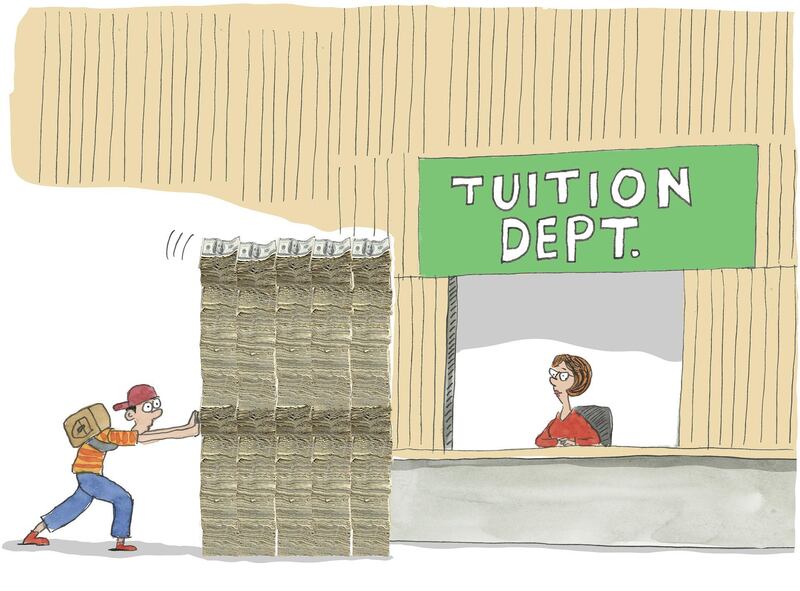"The outrage is a system that is already so distorted by money and privilege in the first place." These are the words of the judge sentencing Felicity Huffman earlier this month — the Hollywood actress was charged with fraudulently boosting her daughter's SAT college entrance exam score by paying a bribe. She was the first parent to be sentenced among 50 people indicted.
The scandal is being billed as the largest college admissions scam ever prosecuted. Reasons given by parents who committed the fraud include Huffman’s ironic desire to give her daughter a “fair shot” at being accepted for college. Others include wanting their child to land the ultimate ‘badge of wealth’ that comes with attending the ‘right’ university — where connections are more important than the quality of education.
Having a better shot at getting a job or securing future financial fortune was a main consideration for these parents, I venture, as they are already wealthy.
US District Judge Indira Talwani, from the US Attorney’s Office for the District of Massachusetts, is right. Money and privilege are a key factor determining who gets to university in the first place. And it perpetuates the money cycle, as those who do attend tend to make more money than those who don’t.
It’s a fortuitous time of year to have a scam like this play out in the media because October is a month full of key deadlines for those planning on going to university.
If making a lot of money is your reason for going to university, then read on. I’m here to share the global top tertiary establishments that boost your chance of making it big. And I mean mega-wealth.
The key question here is not so much "what should I study?" as "where should I study?".
A recent survey by Wealth X, a database that claims to have developed the world's most extensive collection of records on wealthy individuals, examined these two questions: which universities produce and/or attract the world’s wealthiest individuals? And how do wealthy alumni compare across universities?
The report, published this summer, not only reveals the universities with the highest number of wealthy alumni, but also explores their country of origin, and how their wealth is made. The research is global and includes institutions such as Harvard, Cambridge and the National University of Singapore.
We’re talking Ultra High Net Worth alumni rankings — in other words those with wealth of over $30 million (Dh110m). And no, the money was not gifted in large part — 79 per cent of Harvard’s graduates are self made.
I struggle with statements like ‘self made’. As a presidential candidate, Donald Trump repeatedly said his father gave him a “very small” $1m loan, which he turned into an empire. That's not how I would define the term but I digress.
If you, or someone in your family, is struggling to decide where to apply to, and if having a lot of money is a motivation, read on for some of Wealth X’s findings:
• Each of the top global 20 universities have at least 2,000 UHNW alumni, with the top five surpassing 3,000
• Only three of the top 20 are outside of the US
• With nearly 14,000 UHNW alumni, Harvard tops the list. The university has more than double the UHNW alumni of Stanford and the University of Pennsylvania, in second and third place, respectively
* Columbia University, Northwestern University and Boston University have the highest proportion of female UHNW alumni, at 12 per cent, 11 per cent and 10 per cent respectively
For me, this begs the question: is it because the students that go there are already rich? Or is it because they mix with rich folk once they attend the university?
It makes you wonder whether "investing" in education should be looked at in a very specific way, such as which establishment gives students the best network for life.
And so, we end where we begin: "The outrage is a system that is already so distorted by money and privilege in the first place."
Nima Abu Wardeh is a broadcast journalist, columnist and blogger. Share her journey on finding-nima.com







